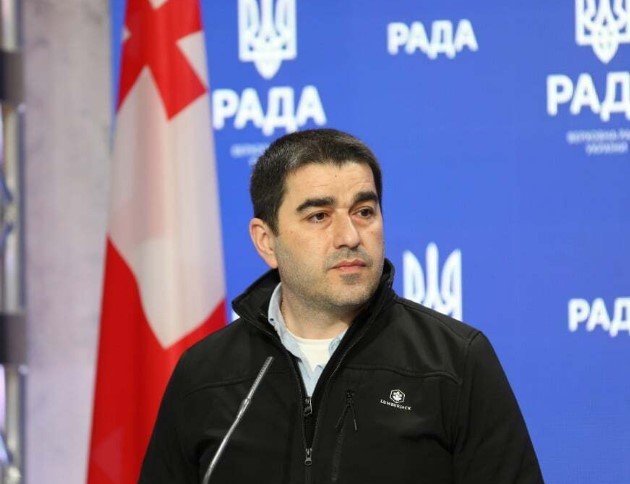In a recent press conference, Shalva Papuashvili, Chairman of the Parliament of Georgia, asserted that external forces are attempting to influence the opposition’s election narrative. He emphasized that while every country manages its own elections, there are efforts to dictate the agenda for the opposition in Georgia. Papuashvili’s statements come amid ongoing discussions about the upcoming elections, highlighting the tension between the ruling party and the opposition. The Speaker’s remarks have sparked a debate about the role of foreign influences in Georgian politics.
Allegations of Foreign Interference
Shalva Papuashvili’s comments have brought attention to the issue of foreign interference in Georgian elections. He claimed that external forces are providing the opposition with talking points, aiming to sway public opinion. According to Papuashvili, these influences are evident in the opposition’s campaign strategies and narratives. He argued that the opposition’s reliance on foreign support undermines their credibility and raises questions about their commitment to Georgia’s sovereignty.
The Speaker’s allegations have been met with mixed reactions. Supporters of the ruling party, Georgian Dream, have echoed Papuashvili’s concerns, emphasizing the need to protect national interests. They argue that foreign interference poses a threat to Georgia’s democratic processes and sovereignty. On the other hand, opposition leaders have dismissed these claims as baseless, accusing the ruling party of using fear tactics to discredit them.

The debate over foreign interference is not new in Georgian politics. Previous elections have also seen accusations of external influences, with both sides blaming each other for seeking foreign support. Papuashvili’s recent statements have reignited this contentious issue, highlighting the deep divisions within the country’s political landscape.
Impact on Election Campaigns
The allegations of foreign interference have significant implications for the upcoming election campaigns. Papuashvili’s remarks have intensified the rivalry between the ruling party and the opposition, with both sides seeking to gain an advantage. The ruling party has used these allegations to rally support, portraying themselves as defenders of national sovereignty. They have called on patriotic Georgians to support Georgian Dream and reject foreign influences.
The opposition, meanwhile, has sought to counter these claims by emphasizing their commitment to democratic values and transparency. They argue that the ruling party is using the issue of foreign interference to distract from their own shortcomings and failures. The opposition has also highlighted the importance of international support in ensuring free and fair elections, framing it as a necessary safeguard against potential abuses of power.
As the election date approaches, the issue of foreign interference is likely to remain a central theme in the campaigns. Both sides will continue to leverage this narrative to mobilize their supporters and discredit their opponents. The outcome of the elections will depend, in part, on how effectively each side can navigate this complex issue and convince voters of their position.
Broader Implications for Georgian Politics
The controversy over foreign interference has broader implications for Georgian politics. It underscores the challenges that the country faces in maintaining its sovereignty and democratic integrity. The allegations of external influences reflect the geopolitical tensions that Georgia navigates, situated between powerful neighbors and seeking closer ties with Western allies.
Papuashvili’s statements also highlight the fragility of Georgia’s political landscape. The deep divisions between the ruling party and the opposition, exacerbated by accusations of foreign interference, pose a risk to the country’s stability. Ensuring a peaceful and transparent election process will be crucial in maintaining public trust and preventing further polarization.
The international community is closely watching the developments in Georgia. Observers and foreign governments have expressed concern about the potential impact of foreign interference on the elections. They have called for vigilance and measures to safeguard the integrity of the electoral process. Georgia’s ability to conduct free and fair elections will be a test of its democratic resilience and commitment to sovereignty.
